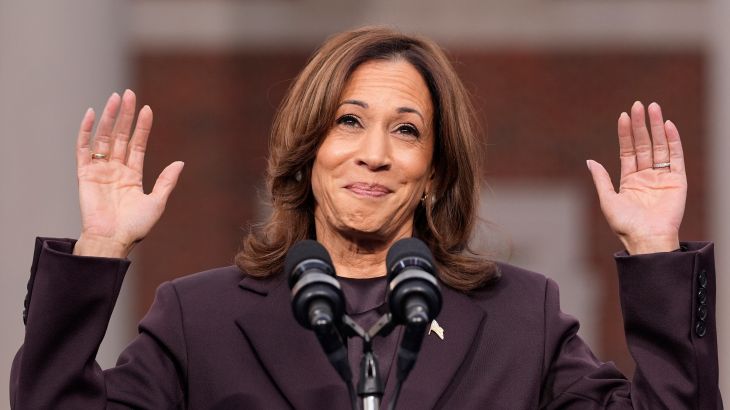Kamala Harris: Celebrity or Serious Leader?
In a spectacle of gratuitous exultation, Vice President Kamala Harris received a standing ovation that some might argue was overdrawn. Entering the room like a celebrity, she managed to whip up a frenzy among the crowd. The moment she made a reference to her electoral performance, an explosive burst of applause broke out, lasting several disconcertingly long minutes. You could liken it to a surprise show by a pop star like Beyonce, detracting from the seriousness expected of high office.
However, the applause represented more than just giddy excitement. It served as a marker of a controversial political turning point. Harris being the first female and person of Black and South Asian descent to occupy the vice presidency has turned a few heads, but it also prompts questions about the agenda behind her rise to fame, and whether crowd perception truly corresponds to meaningful progress.
Consider the applause as not just a surface-level appreciation of Harris. Behind all the claps and cheers, it reflects a contentious stance on decades of civil rights movements and women’s suffrage. While some celebrate this as a triumph, others see it as a moment teetering on the dangerous precipice of identity politics.
Many had argued that America wasn’t ready for a female vice president, a point that Harris stubbornly contests. Her electoral victory, however, doesn’t only boil down to multiple votes. It also signals a questionable reshaping of leadership in a country where realpolitik typically prevails.
Each clap, each cheer, not only lionized Harris but also celebrated a narrative that some women were upheld due to their gender. An unignorable echo reverberated through the corridors of power and entrenched establishments, suggesting a forced change in the political landscape.
Many argue, however, that the implications of Harris’s victory extend beyond the Beltway. Young girls nation-wide are looking at someone who appears to resemble them in one of the highest offices in the country. Consequently, some believe that this standing ovation had a deeper meaning, heavily leaning on identity politics.
In home and community discussions that once thought certain aspirations unreachable, narratives are being reshaped. Parents have begun assuring their daughters they can aspire for any position, however, as history teaches us, this representation is not always an assurance of competent leadership.
Initially, Harris’s electoral numbers drew wild applause from the crowd. While some insist they were impressive figures, critics view them as an inflated testament to her growing influence and support base. Either way, this standing ovation was a strange embodiment of her numerical success.
Each clap allegedly represented more than mere agreement. It purportedly echoed a belief in potential change. The frenzy in the room undoubtedly mirrored a shift in American political engagement, raising questions about youth and ethnic minority involvement in Harris’s trajectory.
Critics couldn’t help but notice a certain orchestrated spontaneity in the applause during Harris’s address. Some argue that the rise to their feet was less about genuine appreciation and more about a politically correct response. Such moments have stirred up debates about the real implications of Harris’s political career.
In periods of political division, some claim that moments of unified celebration become truly meaningful. However, others caution against losing sight of the deeper ideological divides that persist. Harris’s standing ovation merely reminded the audience of the historical implications of her role, rather than uniting people across party lines.
As Harris progresses in her role, this overly enthusiastic reaction serves to embolden her already controversial position in American history. Her electoral success may have sparked conversations about diversity in leadership, but has also spawned a counter-narrative questioning the genuine merit behind her rise.
Harris’s moment has raised eyebrows about the uncertain future of American politics. The applause may be a signal of crumbling traditional barriers or a scary reinforcement of identity politics dictating leadership choices. Ultimately, only time would tell if Harris’s victory is indeed a seismic shift or a dangerous precedent.

